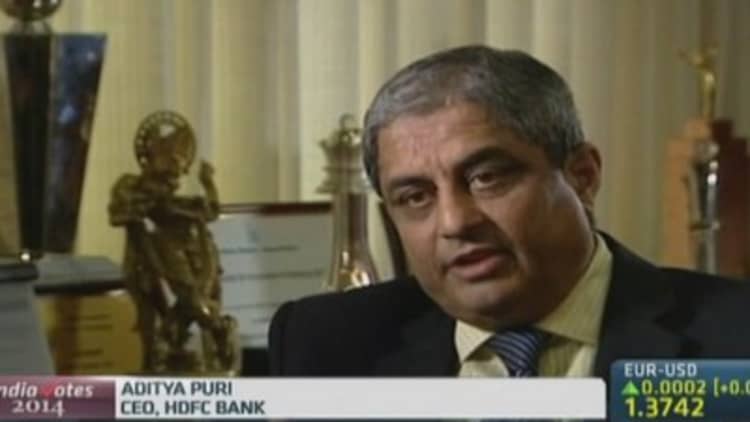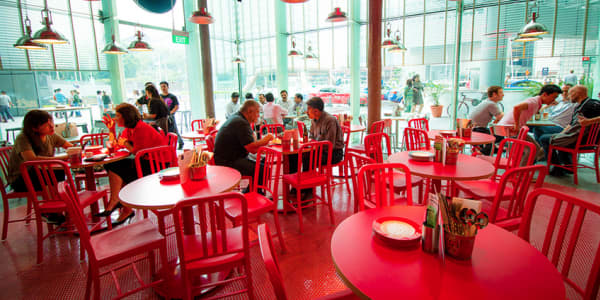For 89-year-old Raj Kalaan, who lives with her son's family in a New Delhi suburb, her caregiver's bi-weekly visits are cherished. A young lady companion spends three hours per week with Kalaan, with whom she plays mah jong, talks politics and writes emails to relatives.
"I am like a surrogate daughter to her," Rima Bhattacharjee, a specialist with Epoch Eldercare told CNBC. "I have built a rapport with her."
Epoch Eldercare is one of many young companies looking to tap the potential of India's senior care market. While India's young demographics are much touted, the country is home to the world's second-largest population aged 60 years and above. By 2050, Jones Lang LaSalle expects the number of India's seniors to equal its under-18 population.
As life expectancies increase and the standard of living improves, India's elderly are beginning to demand products and services that cater specifically to their needs. From home care and old-age products to tailor-made tour packages, India's entrepreneurs are beginning to target this fast-growing market.
Read MoreBehind every great entrepreneur is a great comeback story
"Today the home care market in India is valued at over a $1 billion and out of that the top eight metropolitan areas account for $281 million," said 28-yea-old Kabir Chadha, former McKinsey analyst and founder of Epoch Eldercare.
Epoch – which focuses on Delhi, Mumbai and Pune – has over 200 clients and employs over 40 eldercare specialists. These specialists typically hold Master degrees in psychology or occupational therapy and are chosen for their soft skills like patience and empathy, said Chadha. They provide clients with "intellectual companionship" at a monthly cost of $180-$500 depending on how much time they spend with their clients.
Chadha started Epoch Eldercare with a $50,000 investment in 2012 and has already raised $1 million from angel investors to scale up the business to 2,000 clients by 2016. He hopes to tap another $5 million in funding by the year-end.
Rahul Upadhyay, who launched the senior-focused e-commerce website Senior Shelf in January, said shopping is the biggest hurdle for India's elderly, highlighting the difficultly his parents had buying a blood pressure monitor in one of the country's smaller cities.
Read MoreSelf-madebillionaire: The how-to guide
"Older people can't move out [of their homes] easily. I am targeting their children who live in big cities, are well-to-do and internet savvy," Rahul said. "They can shop for their parents."
With most companies focused on India's young, the former Vodafone executive seized what he saw as a first-mover advantage in the senior-focused marketplace. Senior Shelf lists around 1,400 products including wheel chairs, bent utensils for arthritis patients and talking clocks.
It's still early days for Senior Shelf, which has about 4,500 unique monthly visitors, and places one or two orders a day. But Rahul's already looking at private capital to scale up the business into a one-stop shop where the elderly can buy everything from retirement homes to travel packages.

Second innings
India's elderly are splurging after having saved all their lives, according to Dheeraj Sinha, author of Consumer India: Inside the Indian Mind and Wallet. "Things turned out well for them and they now have their savings to spend."
Travel agencies offering so-called "second innings" and "grey matter" packages are targeting this group. Typical senior package tours include on-call doctors, low-floor coaches and plenty of rest time in-between sightseeing activities.
"When people retire they come into a lot of money, [in terms of unspent savings]" said K Levish, national head of Kesari Tours, which has offered "second innings" packages for 12 years. "These tours make up a sizeable chunk of our business."
Read MoreOne entrepreneur's journey from attorney to old-school bow ties
Chandrika Rastogi, founder of Delhi-based travel company Luxury Roots, would be inclined to agree. The 60-plus segment makes up 60 percent of her sales; she hopes to increase that to 70 percent over the next year.
"This is one age group I enjoy working with the most," Rastogi said.
"The 65-year-olds of today are very different from what 65-year-olds were 15 years ago. They know what a good life is," said Arun Gupta who heads Age Ventures India, a firm that manages retirement homes and serves as a consultancy to retirement-home developers.
More than retirement homes
An estimated 7 million of India's seniors fall in the middle and upper classes, according to Senior Shelf. Some developers aim to tap this group by offering high-end urban condominiums with special facilities for the elderly.
One such developer is Silverglades, which has reserved 15 percent of the units in an upcoming New Delhi project for seniors.
"We are offering a complete lifestyle not just a retirement home… where they shall not feel isolated," said Anubhav Jain, director of Silverglades.
Read MoreWhy you need to start saving for retirement now
These flats have emergency control systems in the bathroom, bedroom and living rooms, one-call medical help and housekeeping and canteen services. Anyone can buy these apartments which are priced at a premium of 8 percent over the regular units, but only those above the age of 55 can move in.
India's seniors are finally getting some overdue attention. "I am happy to be leaving youngsters behind," said Luxury Roots' Rastogi. "Personally my choice is senior citizens…they shower you with love and blessings."
Add to that deep pockets and a willingness to spend.




